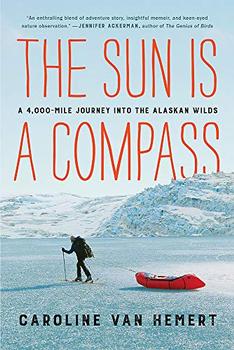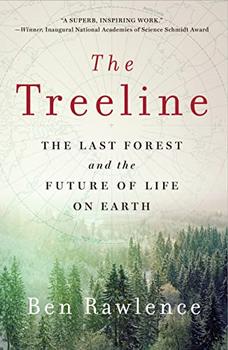Summary | Excerpt | Discuss | Reviews | Beyond the book | Read-Alikes | Genres & Themes | Author Bio

A 4,000-Mile Journey into the Alaskan Wilds
by Caroline Van HemertThe gripping story of a biologist's journey from Washington State to high above the Arctic Circle - traveling across remote and rugged terrain solely by human power - to rediscover birds, the natural world, and her own love of science.
During graduate school, as she conducted experiments on the peculiarly misshapen beaks of chickadees, ornithologist Caroline Van Hemert began to feel stifled in the isolated, sterile environment of the lab. Worried that she was losing her passion for the scientific research she once loved, she was compelled to experience wildness again, to be guided by the sounds of birds and to follow the trails of animals.
In March of 2012 she and her husband set off on a 4,000-mile wilderness journey from the Pacific rainforest to the Alaskan Arctic, traveling by rowboat, ski, foot, raft, and canoe. Together, they survived harrowing dangers while also experiencing incredible moments of joy and grace - migrating birds silhouetted against the moon, the steamy breath of caribou, and the bond that comes from sharing such experiences. A unique blend of science, adventure, and personal narrative, the book explores the bounds of the physical body and the tenuousness of life in the company of creatures whose daily survival is nothing short of miraculous. It is a journey through the heart, the mind, and some of the wildest places left in North America.
In the end, The Sun Is a Compass is a love letter to nature, an inspiring story of endurance, and a beautifully written testament to the resilience of the human spirit.
Van Hemert's writing is engaging, and she's able to capture the essence of her adventure flawlessly. The book will appeal most to those who enjoy travelogues, memoirs and works about interacting with nature, although the account is so enthralling it will likely appeal to a much broader audience...continued
Full Review
 (674 words)
(674 words)
(Reviewed by Kim Kovacs).
 Caroline Van Hemert's memoir, The Sun is a Compass, chronicles a 4000-mile journey that concludes in northwest Alaska in the city of Kotzebue.
Caroline Van Hemert's memoir, The Sun is a Compass, chronicles a 4000-mile journey that concludes in northwest Alaska in the city of Kotzebue.
Kotzebue is located on a three-mile-long sand spit at the end of the Baldwin Peninsula, where the Noatak, Kobuk and Selawik rivers converge. Although it was named after Otto von Kotzebue (1787-1846), a German explorer and fur trader in the employ of the Russian Empire, the area was a central trading hub for the native population for at least 600 years before it was "discovered." The indigenous name for the area is Kikiktagruk, which means "almost an island." Trade expanded as Russian fur agents and missionaries arrived, and whalers and gold miners further supplemented the population.
Kotzebue ...

If you liked The Sun Is a Compass, try these:

by Ben Rawlence
Published 2023
In the tradition of Elizabeth Kolbert and Barry Lopez, a powerful, poetic and deeply absorbing account of the "lung" at the top of the world.

by Heather Lende
Published 2021
The writer whom the Los Angeles Times calls "part Annie Dillard, part Anne Lamott" now brings us her quirky and compassionate account of holding local office.